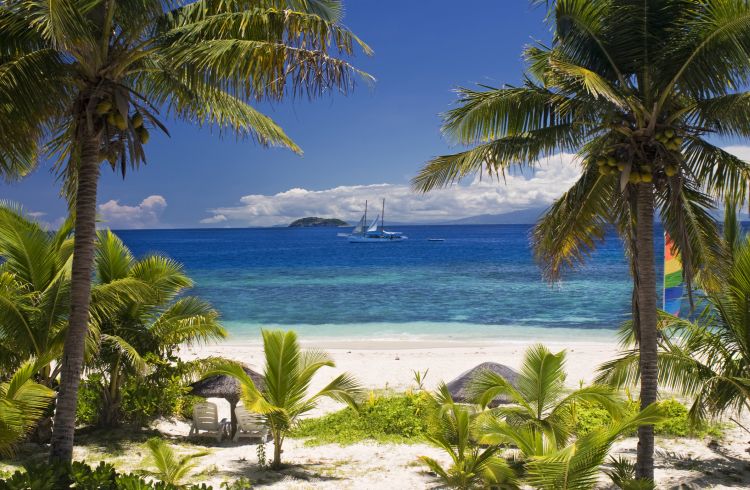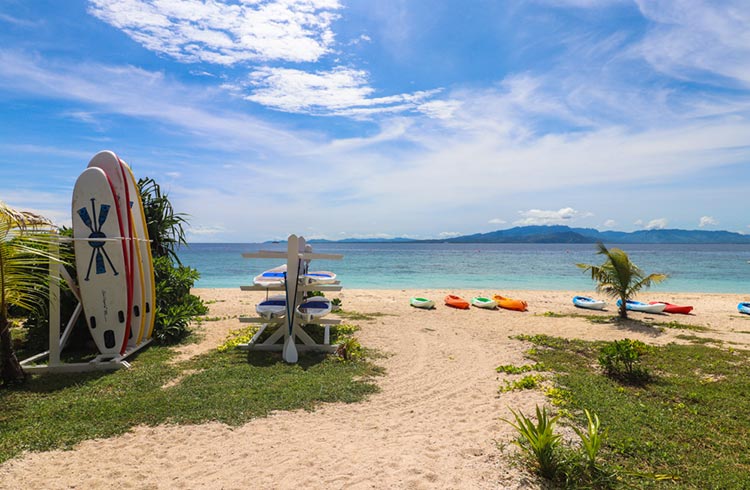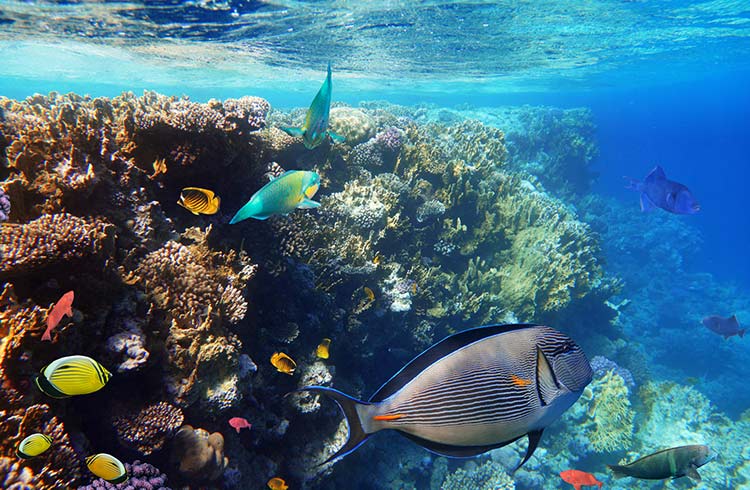How to Stay Healthy While Traveling Around Fiji
Can I drink the water in Fiji? What vaccinations do I need? Here are some handy tips to help stay healthy while traveling in this Pacific Island nation.
 Photo © Getty Images/7Michael
Photo © Getty Images/7Michael
- Vaccinations for Fiji
- Medical Treatment in Fiji
- Mosquito-Borne Diseases
- Is Fiji Water Safe?
- Typhoid
- Kava
- Seafood Poisoning
Vaccinations for Fiji
There are no compulsory vaccinations, however travelers are recommended to make sure they have the following:
- Routine Vaccinations (Measles, Mumps, Rubella, Chicken Pox, Diphtheria, Polio and Tetanus)
- Typhoid
- Hepatitis A
Medical Treatment in Fiji
Medical treatment facilities in Fiji are limited, but are okay for minor procedures. However in the case of an emergency patients will need to be medi-vac'd. Clinics and hospitals often ask for payment upfront before treatment.
For emergency assistance, call 911.
For scuba divers, the nearest hyperbaric chamber is at the Colonial War Memorial Hospital in Suva. If the chamber is unavailable, patients are transported to Australia. It's vital that all scuba divers traveling to Fiji have travel insurance with adequate medical coverage, including medical evacuation.
Mosquito-Borne Diseases
Malaria and Yellow Fever are not present in Fiji.
Dengue Fever
Fiji does experience outbreaks of dengue fever, so it's important that travelers protect themselves from this mosquito-borne disease.
The mosquitos are most active between dawn and dusk, thriving in locations where water is present and areas with poor sanitation.
Should you start to feel unwell, seek medical help immediately as if left untreated, dengue fever can evolve into dengue hemorrhagic fever, which is a life threatening condition.
Zika Virus
Zika virus has been detected in Fiji, and like dengue, it's transmitted by mosquitoes. Click here to learn more on this disease and how you can protect yourself.
Is Fiji Water Safe?
The tap water in Nadi, Suva and in the resorts is generally safe to drink unless otherwise stated. Unofficially, any local will tell you it's an acquired taste, and not recommended for visitors.
Outside the main cities, in rural areas and on the smaller islands, the main water supply is tank water and it's not always safe. Unless your resort has safe water, assume all water as unsafe.
Before consuming any water, make sure its treated and purified. Avoid showering or bathing with your mouth open.
Tip: Boil tap water in an electric kettle if you have one in your room, and allow the water to cool before drinking.
Typhoid
Typhoid fever, also known as enteric fever, is a life threatening illness caused by the bacteria, Salmonella typhi.
Typhoid outbreaks tend to happen after Fiji gets hit by a cyclone due to damaged infrastructure and contaminated water.
Kava
Dubbed Fiji's unofficial national drink, kava is a nervous system depressant drug prepared from the roots of the Kava Kava (Piper methysticum) plant. It's used in social and ceremonial settings and is prepared by grounding the root and mixing with coconut water or milk, which is then consumed as a drink.
Kava can have varying effects on people depending on their physiology, the amount consumed and if they have been taking other drugs including alcohol.
It's important travelers consider whether they should partake in kava or not. If you are under the influence of kava and end up in an accident or injured, you may not be covered by travel insurance.
Seafood Poisoning
Many cases of food poisoning associated with consuming fish and other seafood are diagnosed each year. There are 3 types of fish toxins which can cause people to fall ill or die: ciguatera, scombroid and shellfish.
Ciguatera
Originates in reef dwelling fish such as mackerel and snapper. Cooking and freezing does not reduce the risk of the toxin. Symptoms such as nausea, vomiting, headache and numbness can appear instantly or several hours after ingestion.
Scombroid
Improper food handling (e.g little or no refrigeration) is the main source of poisoning. The toxin in fish such as tuna, marlin and mahi-mahi converts into histamine, with symptoms appearing similar to an allergic reaction within an hour of consumption. Scombroid is often misdiagnosed as a result so should you experience allergy like symptoms such as swelling, itchiness and tingling, seek medical treatment immediately.
Shellfish
Toxins which are ingested by filterfeeding shellfish such as scallops, mussels, oysters and clams can cause allergy like symptoms and sometimes gastroenteritis, which appear up to an hour after consumption. Some toxins can cause nervous distruption which can cause a coma or death.
All three of these poisonings are medically treated based upon the symptoms experienced.
Related articles
Simple and flexible travel insurance
You can buy at home or while traveling, and claim online from anywhere in the world. With 150+ adventure activities covered and 24/7 emergency assistance.
Get a quote

1 Comment
Where the"FIJI" water from Nestle coming from ?